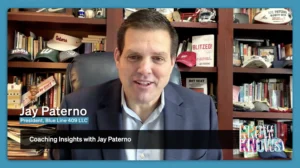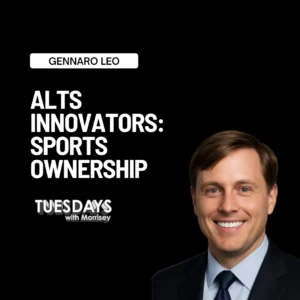Institutional Investments in Team Ownership Could Permanently Impact the NFL as We Know It
The NFL is facing a future of uncertainty. With a lack of individual bidders for team ownership, the pendulum is swinging in an unlikely direction and prompting the creation of a committee and rule changes. The NFL, under commissioner Roger Goodell, has initiated a committee to re-evaluate its ownership policies, with considerations including the introduction of limited private equity investments in teams. Proposed changes to the league’s ownership policies also include endorsing higher debt limits for club acquisitions, adjusting the partner limit in ownership groups, and revising the 30% stake requirement for principal ownership. The recent sale of the Washington Commanders franchise, once of interest to Jeff Bezos, to a sports management company, is a perfect example of where the wind is blowing for professional football ownership trends.
While franchise prices soar into the billions, there are a myriad of scandals that have tainted the NFL’s once untouchable image and a possible reason for a smaller number of bidders. Moreover, as the league contemplates the idea of shifting from individual team ownership to possibly including investment groups, it begs the question: Will more institutionalized profit-driven motives from the likes of PE firms diminish the heart and soul of the game? Or, is this a necessary shift to open the door for more small-dollar investors to get a piece of the NFL pie?
Daniel Rosenberg, Associate Professor and Director at Barry University shares his take on how institutional investments will impact the NFL. As a former college athletics coach and academic coordinator for athletics, Rosenberg’s sports management experience offers some light on what this latest news means for the future of the NFL.
Rosenberg’s Thoughts on the NFL
NFL’s Economic Concerns and Future Investments
“I know it’s hard to say. I don’t think football is teetering. But if I’m taking the long view as an investor, I would have my concerns. You know, I think the NFL today, even though, you know, franchise prices are in the billions, right, still tries to keep that idea of some individual overseeing it to sort of shed the idea of the overly corporate image. Now, when you ask me about diversity, I think if you allow for different funding sources that are not individuals, but things like investment companies, maybe venture capital companies, maybe any kind of equity firms that might see it as an investment.”
“The NFL is riding high and rebounded very nicely after the COVID. It took some hits in ratings and some PR hits when the movie concussion with Will Smith came out. I think it really raised awareness of that issue in public consciousness. But there have been other scandals there. I think Washington had the sex harassment issues and the hostile workplace and gender. I mean, all of the compilation of that, but particularly the concussion issues, making it into sort of mainstream consciousness.”
Franchise Ownership Dynamics
“Yes, of course, football should probably the NFL should probably relax its requirement of, you know, individual bidders and owners. I think you’re always going to have a face of the franchise here in Miami. The Marlins, Derek Jeter was thought of as the owner, but he had a relatively small ownership stake of maybe 10 percent. And there was an individual who was sort of the silent partner who was the real money who owned 80, 90. And he had the controlling share.”
“So I think from from a public relations standpoint, I think the NFL will always, I think having a real restriction, though, I think what I read was that if they opened it up to different funding and sources of ownership that were corporate entities and not individuals, that they wouldn’t be, you know, ever in a controlling or majority. In fact, the one corporate entity I know that owned the team from my childhood was in Major League Baseball. My beloved New York Yankees were for a period of time owned by CBS, a broadcasting company.”
NFL’s Efforts Towards Player Safety and Future Concerns
“So I think maybe there might be some concern that an investment group might diverge from the idea of spending recklessly on talent or something like that. And that could be a concern, too. But I think, as I wrote, it’s a shot across the bow, the Washington situation with only, I think, one one bidder or very few. And that has to be concerning. But I think it might be concerning for a broader reason. I think people are looking down the road, maybe a generation into the future of football. And I think football has spent a lot of money on public relations, on advertising, trying to reassure mothers of young football players that they’re doing everything they can.”
Article written by Alexandra Simon.








